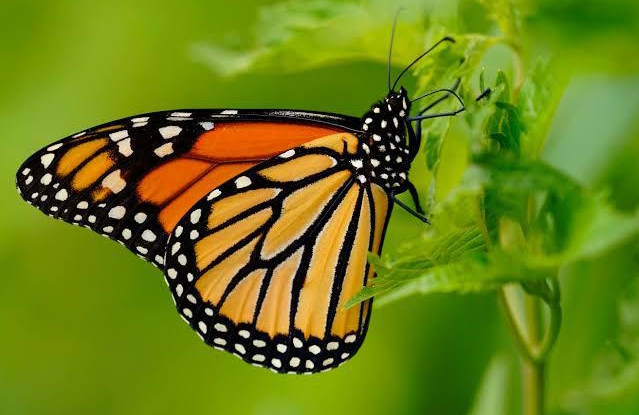Butterfly Entomology and the Art of Creating a Framed Butterfly

Butterflies, with their vibrant colours and delicate forms, have long captivated human imagination. These insects hold a special place in both nature and art, serving as symbols of beauty and transformation. Butterfly entomology, the scientific study of butterflies, offers invaluable insights into their fascinating lives. This article explores the field of butterfly entomology and the meticulous process of creating a butterfly frame for artwork.
Understanding Butterfly Entomology
Definition and Scope
Entomology, the study of insects, encompasses a wide range of species, including butterflies. Butterfly entomology focuses on understanding their life cycles, habitats, behaviours, and species diversity. This knowledge is crucial for conservation efforts and for appreciating the intricate roles butterflies play in ecosystems.
Life Cycle of Butterflies
Butterflies undergo a complete metamorphosis, transitioning through four distinct stages: egg, larva (caterpillar), pupa (chrysalis), and adult butterfly. Each stage presents unique characteristics and challenges. The metamorphosis process, from caterpillar to butterfly, is particularly remarkable and highlights the complexity of their development.
Habitat and Distribution
Butterflies inhabit a variety of environments, from tropical rainforests to temperate gardens. Their distribution is global, with species adapted to diverse climates and regions. Some butterflies, like the monarch, are known for their long migratory journeys, covering thousands of miles.
Behaviour and Adaptation
Butterflies exhibit a range of behaviours and adaptations. Their feeding habits often involve specialised relationships with specific plants. Defence mechanisms, such as mimicry, camouflage, and toxicity, help them avoid predators. These adaptations are key to their survival and success in various habitats.
Collecting and Preparing Butterflies for a Butterfly Frame
Ethical Considerations and Legalities
Collecting butterflies must be done ethically and legally. This involves adhering to guidelines that minimise harm and stress to the insects. Obtaining the necessary permits and following conservation laws ensures responsible practices that do not threaten butterfly populations.
Collection Methods
Effective and humane collection methods include using nets and traps designed to minimise damage. Best practices involve capturing butterflies without harming their wings and releasing non-target species promptly.
Preservation Techniques
Proper preservation is essential to maintain the butterflies' appearance for a butterfly frame. This involves careful handling, drying, and setting. Techniques like pinning and spreading the wings help preserve their natural shape and vibrant colours.
Tools and Materials Needed
Collecting and preserving butterflies require specific tools, including nets, killing jars, and spreading boards. For creating a butterfly frame, essential materials include frames, backing boards, and mounting pins. Using high-quality, acid-free materials ensures the longevity of the artwork.
The Process of Creating a Butterfly Frame
Preparation of Butterflies
Before framing, butterflies need to be relaxed to avoid damage. Relaxation techniques, such as using a humidity chamber, make positioning easier. Carefully pinning the butterflies ensures they remain in place during the framing process.
Selecting the Frame and Background
Choosing the right frame and background is crucial for creating a beautiful framed butterfly. UV-protective glass and acid-free backing materials prevent damage and fading. The background should complement the butterflies, enhancing their natural beauty.
Mounting Butterflies
Securely mounting butterflies involves attaching them to the background with mounting pins. Arranging them artistically creates a balanced and visually appealing butterfly frame. Attention to detail during this stage is essential for a professional finish.
Final Assembly and Sealing
Once the butterflies are mounted, the frame is assembled and sealed. This protects the butterfly frame from dust and environmental damage. Ensuring a tight seal maintains the condition of the butterflies and the overall presentation.
Display and Care of a Butterfly Frame
Optimal Display Conditions
Displaying a butterfly frame in optimal conditions extends its lifespan. Avoiding direct sunlight and excessive humidity prevents fading and deterioration. Ideal locations include rooms with stable temperature and low humidity.
Maintenance and Longevity
Regular maintenance keeps the butterfly frame in good condition. This involves gentle cleaning and monitoring for any signs of damage. Addressing issues like fading or pest infestation promptly ensures the artwork remains pristine.
Conclusion
Butterfly entomology not only enriches our understanding of these exquisite insects but also informs the ethical practices necessary for collecting and framing them. The art of creating a butterfly frame combines scientific knowledge with aesthetic appreciation, resulting in captivating displays that celebrate the beauty of nature. By following responsible practices, we can create and preserve butterfly frames that educate and inspire, highlighting the intricate wonders of the natural world.





